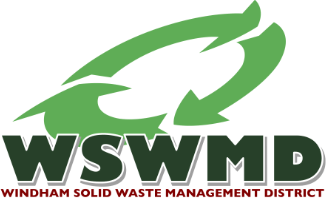Yogurt containers, once rinsed out, can be recycled at all recycling drop-off locations or in your curbside recycling container.
A-Z Disposal Guide
Wondering what to do with?… Search our handy A-Z Disposal Guide to find out how to properly dispose of (or recycle) most common household items.
Ziploc Bags
Ziploc bags are NOT recyclable at the transfer station. Clean Ziploc bags (Dry and containing no food residue) can be recycled at supermarkets that participate in plastic film recycling programs. Otherwise, please dispose of your Ziploc bags in your household trash. Access Sticker or Day Pass is required to dispose of Ziploc bags
Household Trash (Garbage)
General household trash, garbage and/or waste is accepted during normal business hours. Trash does not have to be in any certain bags or containers and may be weighed to determine the actual cost. Cost: See our transfer fee price list It can also be charged by the bag (per 33 gallon bag), then done by […]
Bags (Plastic)
Plastic grocery bags can NOT be placed in the recycling drop-off containers or in your curbside recycling containers. Please check with you local grocery stores for recycling programs. They are not compostable. Plastic bags can be reused, but not recycled or composted. Bags marked “biodegradable” are not compostable, either, as they take too long to […]
Acid
Acid is a hazardous material and banned from Vermont landfills. All acids must be disposed of properly at our Hazardous Waste Depot or a collection event.
Covid Test- (At home test kit)
Although the exterior box may be recyclable, the test itself would be considered trash. COST: The test itself can be put into the household trash. WSWMD charges $3 per bag Access Sticker or Day Pass is required to dispose of household trash If the test is battery-operated, please bring the battery to the scale house […]
Asphalt Shingles
Asphalt shingles are accepted during normal business hours. Shingles are calculated by weight and not by container and is considered construction and demolition. (C&D). Access Sticker or Day Pass is required to dispose of asphalt shingles
Ballast from fluorescent lights
An access sticker is not required to dispose of ballasts. Please bring the ballast (separated from the light fixture) to the scale house upon arrival, do not put into trash dumpsters or recycling. Ballast (with PCBs) Ballasts with PCBs (typically used prior to 1979) are considered hazardous materials and are banned from Vermont landfills. […]
Tires
Vermont bans the disposal of tires into landfills. Bring them to us for proper recycling!* *An Access Sticker or Day Pass is required to dispose of tires Bicycle – $3 Passenger car/SUV/ light truck/motorcycle (off the rim)- $5 – 16″ diameter or larger Tires below 15″ diameter MUST be taken off the rim, we cannot […]
Aerosol Cans
Aerosol cans contain liquid or gas propellant packed under pressure. Full or partially full cans may explode if crushed, punctured, or exposed to heat. Aerosols of hazardous materials Please bring aerosols with hazardous materials, such as spray paint or bug killer, to the Household Hazardous Waste Depot, or an HHW collection event. Empty aerosols of hazardous […]
Cooking Oil/Grease
Never pour used cooking oil or grease down the drain. Liquids should be kept out of the trash! Small amounts of cooking oil can be poured into your compost bin or our compost hopper. An access sticker or day pass is required to dispose of used cooking oil Vermont Roadworks is looking for your […]
Fluorescent Bulbs
Fluorescent bulbs come in many shapes and sizes, but all contain trace amounts of mercury which is very dangerous to the environment. Please see our Fluorescent Bulbs page for information.
